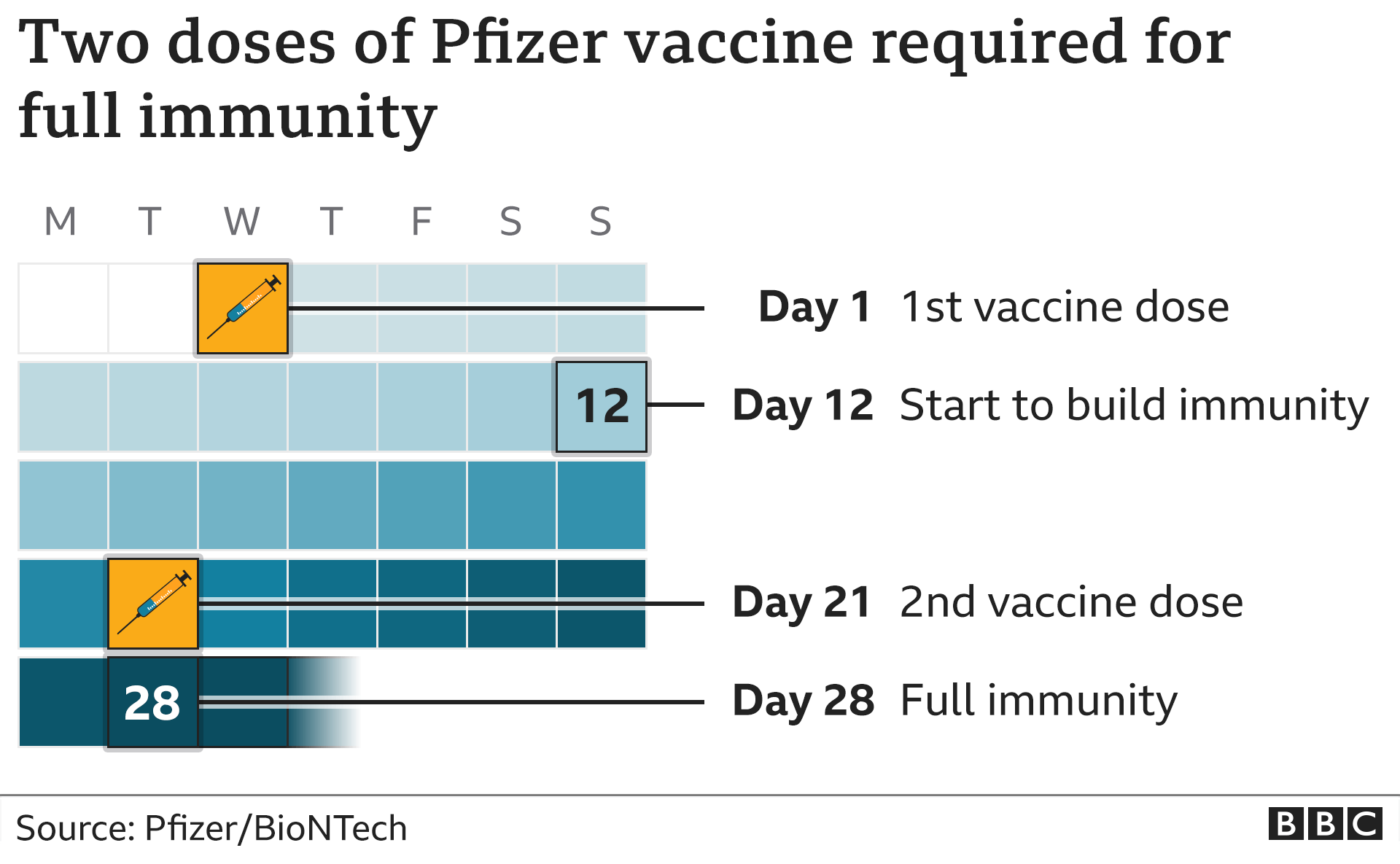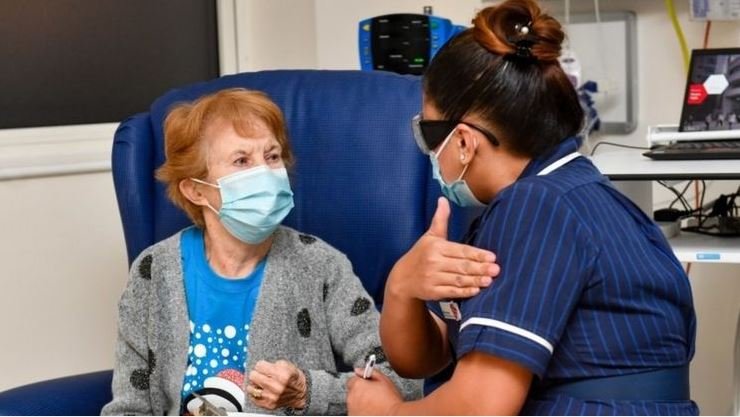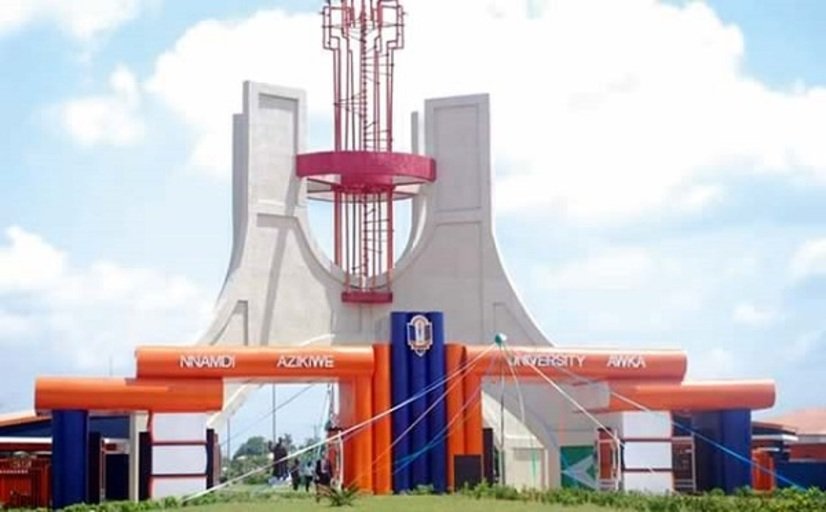A 90-year-old woman has become the first person to be given a Covid jab as part of the mass vaccination programme being rolled out across the UK.
Margaret Keenan, who turns 91 next week, said it was the “best early birthday present”.
She was given the injection at 06:31 GMT – the first of 800,000 doses of the Pfizer/BioNTech vaccine that will be given in the coming weeks.
Up to four million more are expected by the end of the month.
Hubs in the UK will vaccinate over-80s and some health and care staff – the programme aims to protect the most vulnerable and return life to normal.
Matron May Parsons administered Ms Keenan’s vaccine at University Hospital in Coventry.
Ms Keenan, who is originally from Enniskillen, said: “I feel so privileged to be the first person vaccinated against Covid-19, it’s the best early birthday present I could wish for because it means I can finally look forward to spending time with my family and friends in the new year after being on my own for most of the year.”
“I can’t thank May and the NHS staff enough who have looked after me tremendously, and my advice to anyone offered the vaccine is to take it – if I can have it at 90 then you can have it too.”
UK approves Pfizer/BioNTech Covid vaccine
The UK is the first country in the world to start using the Pfizer vaccine after regulators approved its use last week.
Health Secretary Matt Hancock told BBC Breakfast there was a “long march ahead of us but this marks the way out”.
He said he had felt “conflicted emotions” this morning saying he was “thrilled and delighted” to see Margaret get her jab but was also “really determined that as a country we’ve got to stick together”.
“This virus is deadly. We’ve got to stick by the rules,” he said.
Prime Minister Boris Johnson thanked the NHS and “all of the scientists who worked so hard to develop this vaccine”, the volunteers and “everyone who has been following the rules to protect others”.
“We will beat this together,” he added.
Vaccination is not compulsory.
Some 800,000 doses of the Pfizer/BioNTech vaccine have been secured by the government to be administered in the coming weeks.
Orders have been placed for 40 million in total – enough for 20 million people, as two courses are needed.

However, most of that is not expected to become available until next year, although government sources said another four million doses should arrive in the country by the end of this month.
Mr Hancock said he expected it to take “several weeks” to get the first group of health workers, care staff and over-80s vaccinated.
Prof Stephen Powis, national medical director of NHS England, said the start of the vaccination programme felt “like the beginning of the end”.
2020 had been a “dreadful” year but life would get back to “normal” in the coming months, he said.
Asked what his message was to people who might have concerns about the Covid jab, he told BBC’s Breakfast vaccination was “one of the safest forms of medicine”.
“This one has been tested in many thousands of people in clinical trials and, of course the independent regulator the MHRA, has looked at it carefully – as it always does – and has given it the green light.
“And so if you get called, we’ll be calling you to come and get it, then my advice is come and get it.”
BBC health correspondent Nick Triggle said the NHS was facing a huge task in rolling out the vaccination programme, from storing the vaccines at ultra-cold temperatures to getting a smooth supply.
There have already been reports of manufacturing problems, meaning the UK is expecting less than half of the 10m doses of the Pfizer jab it was planning for by the end of the year, he said.
Even though today is a momentous moment, the UK is still pinning its hopes on the British-made Oxford University vaccine which is being looked at by regulators.
Our correspondent said there were already millions of stocks in the country and if it got the green light, there would be a genuine hope the first few months of 2021 and a return to something closer to normality.
Matt Hancock said he “very much” hoped a second vaccine, developed by the University of Oxford and drugs firm AstraZeneca, would be approved by UK regulators in the “next couple of weeks”.











